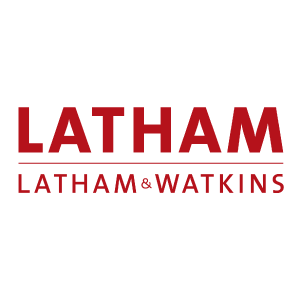Tuesday, March 21

9:00 am – 12:00 pm | $150 | Room: Anabella D
California Compliance Offset Program Workshop
The Climate Action Reserve invites you to attend a workshop that will provide an introduction to the basics of California’s Compliance Offset Program, including an overview of the various Compliance Offset Protocols and verification of compliance offset projects. This workshop will also focus on updates to and expectations for California’s Compliance Offset Program. This workshop will be useful for consultants, compliance offset buyers, project developers, policymakers, and anyone interested in learning more about California’s compliance offset program. Host: Climate Action Reserve
9:00 am – 10:00 am | Room: Anabella B
Voluntary Carbon Market – A Motley Crew of Sub-Markets Each with a Different Future
The Voluntary Carbon Market is often treated as a contingent whole, but really, it’s a collection of sub-markets. Voluntary Offsets have radically different prices, depending on protocol, nature of buyers and their purpose, and by additionality and permanence concerns. Each of these sub-markets has different dynamics, and very different futures, each impacted by processes like IC-VCM, the Integrity Initiative, Article 6, and the slew of emergent exchanges. And so, each submarket requires its own tailored forecast scenarios. cCarbon will be introducing its protocol specific market forecasts, updating and refining the aggregate market view presented last year. Host: cCarbon.info
9:00 am – 12:30 pm | Room: Anabella C
Leveraging the Voluntary Carbon Market to Improve Forest Health
Voluntary carbon markets are evolving in exiting ways not only to mitigate climate change, but also to address pressing natural resource concerns. Come and learn about three innovative crediting opportunities provided by the Climate Action Reserve that address forest health and restoration. This workshop will be of interest to a range of attendees including project developers and natural resource managers and will be appropriate for both new and seasoned carbon market professionals:- 9:00 – 10:00 – Biochar Protocol (in development), which incentivizes the use of waste and by-product biomass, such as from fuel thinnings, to produce biochar in ways that provide net carbon removals from the atmosphere. This session will include discussions about trends in the biochar industry in relation to carbon markets by the International Biochar Initiative’s Board Chair, the results of a market analysis performed by Blue Forest, and highlights from the Reserve’s forthcoming biochar protocol.
- 10:15 – 11:15 – Reforestation Forecast Methodology, which credits for the restoration of forest cover, including following a disturbance such as a high-severity wildfire. This session will feature a brief overview of the methodology, along with a discussion of experiences around project development and marketing by representatives from Green Diamond Resource Company and Mast Reforestation (formerly DroneSeed).
- 11:30 – 12:30 – Reduced Emissions from Megafires (REM) Forecast Methodology, recognizes the climate benefits from lowering the risk of wildfires and the GHG emissions associated with them. A brief overview of the methodology will be provided, along with discussions about project development from Spatial Informatics Group) and marketing of REM projects and credits from Anew.

10:00 am – 12:00 pm | Room: Anabella A
Mexico’s Carbon Market: How to achieve scale and local impact
In the past year the voluntary carbon market in Mexico has boomed with further anticipation of the coming compliance market. There are currently 237 projects listed or registered with the Climate Action Reserve in Mexico and 2023 marks the first year of the compliance phase for the national ETS administered by SEMARNAT. With the majority of projects to date communally owned, local inclusion and impact is both critical and sensitive; in response, SEMARNAT has sought to work with registries and project developers to collaborate and has shared draft legislation under consideration to regulate the voluntary carbon market. In addition, the Reserve has recently updated its Mexico Forest Protocol to strengthen the social and environmental safeguards. In the first part of this workshop, hear directly from community members on how carbon projects are affecting their communities as well as from project developers on how they design projects to ensure local impact and from the Reserve on how the protocols safeguard social and environmental benefits. In the second part, hear from regulators, international NGOs, and buyers on the growing carbon market, importance of scale vs. local impact, and government’s role in the voluntary and compliance market. Host: Climate Action Reserve
10:00 am – 12:00 pm | Room: Gloriana AB
Biochar: Emerging Opportunities for Carbon Project Development
Join carbon project developer South Pole and decarbonization accelerator GRAIN Ecosystem for an exciting pre-conference workshop. This comprehensive session will explore emerging opportunities for biochar project development, including the methodological landscape, market insights and new tools and resources, followed by an interactive demonstration and panel discussion on how to develop and finance your projects. Host: South Pole
11:00 am – 12:00 pm | Room: Anabella B
High Integrity Data for High Integrity Carbon Markets
Transparency drives trust, investment, and liquidity in carbon markets. Join Ecosystem Marketplace for an informal and social session to discuss the opportunities and challenges related to high integrity carbon markets.
Speakers include:
- Stephen Donofrio, Managing Director, Ecosystem Marketplace
- Ciro Calderon, Research Analyst, LatAm, Ecosystem Marketplace
- Geisa Principe, Research Director, Cool Effect
- Daniel Melling, Head of Marketing, CTrees

1:00 pm – 4:00 pm | $150 | Room: Anabella D
California Cap-and-Trade 101 Workshop
California’s Cap-and-Trade Program is a critical tool for the state’s climate agenda and facilitates the reduction of greenhouse gases and investment of billions of dollars in emissions reduction projects. It was the first economy-wide carbon market in the U.S. and serves as a model for national and subnational governments as the fourth largest emissions trading program in the world. In this three-hour workshop, join experts from the field as they give an overview of California’s Cap-and-Trade Program, including how it functions under California’s AB 32, SB 32, and AB 398 policies; basic market structure; compliance instruments used; participating entities and their obligations; key program successes, challenges, and major changes made since its launch; future developments of the program; and more. This is an excellent workshop for those new to the Cap-and-Trade Program or who are in need of brushing up their knowledge. Host: Climate Action Reserve
1:00 pm – 3:00 pm | Room: Caramia
Climate Action Reserve Board of Directors Meeting

1:30 pm – 2:30 pm | Room: Gloriana AB
Washington Carbon Market: Newer, Smaller Markets Influencing Older, Larger Ones
It’s Washington’s debut year operating active carbon markets, both Cap-and-Trade and Clean Fuels Standard. Each new month of price and emissions data is still shedding new light on the market’s emerging characteristics and is revealing both short and long-term equilibriums. Both programs were borne out of the Californian equivalents, the potential future linkage partner, and both Washington programs have subtly different design characteristics and objectives from their older California cousins. We will examine how these differences will impact Washington’s own path in our new market forecasts, and how these differences are influencing the policy direction in California. Host: cCarbon.info
1:30 pm – 2:30 pm | Room: Sonia
Exploring Carbon Pricing with OPIS
From compliance and voluntary carbon markets to low carbon fuel standards and renewable energy credits, OPIS’ team of expert editors report from a comprehensive vantage point to the energy transition and the fight against climate change. It’s through this unique lens that OPIS crafts price assessment methodologies for the world’s leading carbon credit indexes. Join OPIS on a journey behind the scenes of how the price reporting agency creates and nurtures groundbreaking daily benchmarks and answers the call for price transparency and fairness in the new climate landscape.
1:30 pm – 2:30 pm | Room: Delicia A
Carbon Pulse AUA (Ask us anything!)
Ever had a question about the carbon markets that you were afraid to ask? Now’s your chance… Join Carbon Pulse in its inaugural AUA (Ask us anything) session, where an informal panel of reporters with several decades of carbon markets and climate policy experience between them will endeavour to answer audience questions about anything under the carbon sun. How will the EU’s Carbon Border Adjustment Mechanism (CBAM) work? How do Canada’s provincial carbon pricing schemes differ? What countries are developing their own domestic voluntary carbon standards? Even if you don’t have any questions to mind, come engage in some insightful conversation with your industry colleagues and possibly 1-2 expert special guests to join Carbon Pulse on the panel. Host: Carbon Pulse
1:30 pm – 5:00 pm | $250 | Room: Anabella C
Navigating the Energy Transition Workshop
Climate considerations will play a crucial role as companies navigate the energy transition. This legal workshop will cover emerging issues within the energy transition, highlighting key policy and regulatory developments; the Infrastructure Investment and Jobs Act and Inflation Reduction Act; carbon capture, utilization, and storage; voluntary carbon markets, credits and offsets; renewable fuels and California’s Low Carbon Fuel Standard; ESG; climate disclosures; environmental justice; climate change litigation trends, and the intersection of CEQA and climate change. Host: Latham & Watkins
3:30 pm – 4:30 pm | Room: Sonia
Investor Impact – Causing Correlation between Independent Carbon Markets
Exchange Traded Funds, traders and asset managers are increasing their exposure across carbon assets – CCAs, EUAs, RGGI, and even increasingly the VCM, etc. This represents a general maturation of carbon markets: increased liquidity, a larger number of players (with and without their own emissions). This shift in demographics of market stakeholders has caused a consequent change in market dynamics: greater volatility and faster price response to news cycles and market data. Are they enhancing price discovery or causing distortions? Which new money-making opportunities are occurring from this change, and which novel risks are resulting? Host: cCarbon.info
3:30 pm – 4:30 pm | Room: Gloriana AB
Carbon Quality in Context: The Value of Balance in a Carbon Offset Portfolio
The voluntary carbon offset market has grown and evolved for the last three years. With this growth, the market has faced additional scrutiny around the definition of offset quality and eligibility under various programs. This workshop will review the current state of standardization across the voluntary carbon market, define key quality terms for different project types including nature-based and technology-based, and discuss under which circumstances different project types would fit individual buyer needs. Host: ClimeCo
4:00 pm – 5:00 pm | Room: Gloriana C
Women in Climate Mixer
As the global carbon market rapidly expands, the number of women entering the field and innovating towards climate solutions is also growing. From entry level to boardrooms, science to activism, local tribal and ejido communities to the international stage, women are strengthening efforts for collaborative action on climate change. In this mixer, come meet, network, and grab a drink with fellow women climate professionals making strides in the carbon and climate policy sectors while sharing resources, experiences, and inspiration. This event intends an inclusive definition of women. Host: Climate Action ReserveWednesday, March 22
7:00 am – 8:00 am | Room: Anabella AB
Breakfast Discussions
- Carbon farming: combining multiple project types and advanced genetics
- Led by Frank Carroll, Climate Impact Partners
- The rise of state-level climate action in the US
- Led by Zach Harmer, ClimeCo
- Tips and traps with obtaining governmental approvals to develop low carbon facilities
- Led by Marc Campopiano, Latham & Watkins
- The implications of the Carbon Border Adjustment Mechanism (CBAM) on carbon markers and trade
- Led by Roman Kramarchuk, S&P Global
- The state of standardization in the VCM
- Led by Henry Haggart, Xpansiv
8:00 am – 8:25 am | Room: Carousel
Welcome and Remarks
- 8:00 am – 8:15 am: Craig Ebert, President, Climate Action Reserve
- 8:15 am – 8:25 am: Diane Wittenberg, Founding President, California Climate Action Registry
8:25 am – 8:30 am | Room: Carousel
Keynote remarks – Minister Benoit Charette, Québec
- Benoit Charette, Québec Minister of the Environment, the Fight Against Climate Change, Wildlife and Parks
8:30 am – 8:45 am | Room: Carousel
Keynote remarks – Chair Liane Randolph, California Air Resources Board
8:45 am – 9:50 am | Room: Carousel
Plenary: State of the North American Carbon Market
With strong private sector participation, government implementation and NGO support, carbon markets are poised for explosive growth, which will bring greater quantifiable emissions reductions and investment into climate projects. But the scaling of carbon markets cannot be done at the sacrifice of quality and integrity or they will do more harm than good. This kickoff session for NACW 2023 will examine the current state of North American carbon markets and future growth.- Craig Ebert, Climate Action Reserve
- Judy Meltzer, Environment and Climate Change Canada
- Eduardo Piquero, MexiCO2
- Steve Cliff, California Air Resources Board
9:50 am – 10:00 am | Room: Carousel
Project Developer Awards
10:00 am – 11:00 am | Room: Carousel
Plenary: Biggest Challenges Facing Today’s Global Carbon Markets
Global interest in carbon markets has skyrocketed in recent years, raising serious questions about the scalability of the market and the policies needed to ensure success. This session will bring together key experts facing these challenges on a daily basis to discuss where markets are today and where markets are heading in the years to come. Key issues will include financing challenges, policy issues that could impede or accelerate the role of carbon markets, and management challenges they face scaling their operations, as well as other factors keeping them awake at night.- Katie Sullivan, IETA
- Bill Flederbach, ClimeCo
- John Melby, Xpansiv
- Keegan Eisenstadt, South Pole
- Barbara Harrison, Chevron New Energies
11:00 am – 11:30 am | Room: Anabella AB
Networking Break
11:30 am – 12:30 pm
Breakout Sessions

Path 1: Markets and Finance | Room: Carousel
State and Future of the North American Carbon Market Part 1 – Compliance Markets
Carbon markets in North America remain important tools for reducing emissions, gathering financing to support other climate change options, and reaching climate change goals. Compliance markets also have the responsibility to support federal and subnational climate goals. Part one of a two-part session on North American carbon markets will take a look at WCI, RGGI, Mexico’s ETS and Canada’s GHG Offset Credit System. While WCI will have held its 34th joint auction by the time of NACW, Mexico’s ETS just started its operational phase in 2023 and Canada’s system is also less than a year into operation. Analysts and market players will discuss key near term developments and potential impact for these compliance markets.- Justin Johnson, MMR / IETA
- Patrick Cloutier, Environment and Climate Change Canada
- Andrew McKeon, RGGI
- Emily Wimberger, Hua Nani
- Luke Martland, Washington Department of Ecology

Path 2: Policy | Room: Anabella C
Outcomes from Negotiations at COP27 and Expectations for COP28
What happened at COP27 in Egypt? What were the key successes and, just as importantly, what were the key failures? This session will discuss the outcomes from COP27, including the support for a loss and damage fund, the status of discussions around Article 6, the potential role of corresponding adjustments, among other issues, and what to expect at COP28.- Lisa DeMarco, Resilient
- Robyn Camp, RTI
- Andre Templeman, Alpha Inception

Path 3: Implementation | Room: Anabella D
Insetting: What Is It and What Role Can It Play?
There has been much focus in recent years on insetting strategies for companies in the voluntary market. Some advocates have heralded insetting as the key to voluntary corporate action. This session will discuss what is insetting (sometimes called value chain mitigation), if and how it is different than more traditional offsetting, and the role it could play in the carbon market.- Jonathan Alcock, Verra
- Thomas Blackburn, Value Change Initiative
- Max DuBuisson, Indigo Ag
- Karen Haugen-Kozyra, Viresco Solutions

Path 4: Innovation and Scaling in Carbon Credits | Room: Gloriana
Sustainable Development Goals: Impact on Credit Quality and Pricing
Buyers are increasingly demanding more information on how carbon credit projects also address other sustainable development goals (SDGs). These SDGs cover a variety of other critical social areas, including protection of indigenous rights, equal economic opportunity, and local environmental impacts, among many others. This session will discuss recent market developments, including how important buyers view these SDG attributes, the impact of credit pricing, and global efforts such as the Integrity Council on the Voluntary Carbon Market to define appropriate criteria for assuring that SDGs are considered.- Kristen Gorguinpour, Climate Action Reserve
- Pedro Barata, EDF
- John McDougal, Anew
12:30 pm – 1:30 pm | Room: Anabella AB
Lunch and Exhibit Hall
1:30 pm – 2:30 pm
Breakout Sessions

Path 1: Markets and Finance | Room: Carousel
State and Future of the North American Carbon Market Part 2 – Voluntary Markets
The last few years have seen unprecedented growth and interest in the global voluntary carbon market. Across North America, companies and key market participants are re-assessing their strategies in light of the need to more rapidly respond to the climate crisis. This has brought increased focus on markets everywhere as serious concerns have been raised about the most appropriate strategies to employ. In part two of a two-part session, analysts and market players will discuss the most critical challenges facing the North American voluntary market, including concerns about the supply and quality of carbon credits, the entrance of many new players into the market, the optimal strategies for companies to employ to meet their voluntary commitments, and projected market growth.- Debra Kahn, Politico
- Amy Bann, Xpansiv
- Paula Vanlaningham, S&P Global
- Marisa Hamsik, Chevron New Energies

Path 2: Policy | Room: Anabella C
Climate Action at the US Federal Level
The private sector, environmental NGOs and others rejoiced in 2022 when action on climate change accelerated at the US federal level. Signed into law in August 2022, the Inflation Reduction Act (IRA) represents the US government’s most aggressive action to address climate change and will support the US goal of reducing GHG emissions 40 percent below 2005 levels. Included in the IRA is the investment of US$369 billion in energy security and climate change programs over the next ten years. Also in 2022, the Commodities and Futures Trading Commission (CFTC) took action to start regulating climate risk disclosure, and both the CFTC and Securities and Exchange Commission (SEC) delved into tokenization of carbon credits. Experts in this session will discuss the impact of the IRA and CFTC and SEC actions.- Jim Kharouf, Incubex
- Vilas Kuchinad, Bank of America
- Josh Bledsoe, Latham & Watkins

Path 3: Implementation | Room: Anabella D
Plug and Go: the Rapid Expansion and Development of the EV Market
The EV market has seen rapid expansion and development with more consumers adopting electric vehicles, commercial EVs operating on the roads, the continued development of infrastructure to support EV growth and support from the policy side. EVs are a critical piece of the transition away from fossil fuel transportation. While these developments are positive advancements, roadblocks still exist. Experts in this session will discuss the status of this market and what to expect down the road.- Nancy Sutley, City of Los Angeles
- Rosa Mitsumasu Scotti, Plug In America
- Heather Repenning, LA Metro
- Roman Kramarchuk, S&P Global

Path 4: Innovation and Scaling in Carbon Credits | Room: Gloriana
Incorporating Climate Science into Carbon Markets and Climate Policy
The first alerts about irreversible climate change were made because of scientific research and studies, and science will be behind the solutions and actions to address the situation. Climate science is a critical necessity in guiding impactful action, setting benchmarks, tracking progress and identifying greenwashing. This session will discuss how climate science is being incorporated into carbon markets and how it is influencing climate policy.- Marissa Spence, Climate Action Reserve
- Adam Moreno, California Air Resources Board
- Allister Furey, Sylvera
- Sydney Chamberlin, The Nature Conservancy
2:30 pm – 3:00 pm | Room: Anabella AB
Networking Break
3:00 pm – 4:00 pm
Breakout Sessions

Path 1: Markets and Finance | Room: Carousel
The Future for California’s Cap-and-Trade Market
The California Air Resources Board recently completed an evaluation of its Scoping Plan for achieving California’s climate goals. Now that this evaluation is done, this session will consider major questions facing the market, including what is in the future for the state’s Cap-and-Trade Program, will California ramp up the role of its Cap-and-Trade Program to meet future goals, and will the program be re-authorized post-2030, among other issues.- Jon Costantino, Tradesman Advisors
- Katelyn Roedner Sutter, EDF
- Clayton Munnings, IETA

Path 2: Policy | Room: Anabella C
State Level Action across Mexico
Seven Mexican states are in the process of developing carbon markets or carbon taxes, and the national ETS is in its first year of the compliance phase. Hear from government officials at the state and federal level on the development of these carbon markets and how they will work together, including the many challenges Mexico is facing to assure a coordinated response across the country.- Eduardo Piquero, MexiCO2
- Ricardo Torres, Secretaría de Desarrollo Sustentable del Estado de Querétaro
- Jose Baez, Baez & Abogados/Zacatecas

Path 3: Implementation | Room: Anabella D
Major Carbon Removal Strategies: Savior or Pipe Dream?
Technological developments to remove carbon from the atmosphere are being made every day. Many experts have concluded that without the deployment at scale of Carbon Capture, Utilization and Storage (CCUS) and Direct Air Capture (DAC) technologies the world cannot avoid catastrophic human-induced climate change. This session will discuss the latest developments in this area, including the technological developments, the challenges to bringing these options to market at scale, and steps that need to be taken if significant carbon removal is to be achieved.- Richard Corey, AJW
- Kel Coulson, Carbon Engineering
- Virgil Welch, Caliber Strategies
- Nora Cohen Brown, Charm Industrial

Path 4: Innovation and Scaling in Carbon Credits | Room: Gloriana
North American Forests under Assault
Forests in the western and northern parts of North America are under stress from a wide variety of factors, including drought, pests, disease, fires, and the ongoing ravages of climate change. This session will discuss the many stresses on these critical ecosystems, the role that they play in the climate crisis, the potential options for protecting and enhancing what we have, and the challenges we are facing to assure healthy, viable forests in the coming decades.- John Nickerson, Dogwood Springs
- Phil Saska, Blue Forest
- Javier Kinney, Yurok Tribe
- Emily Hope, Canadian Forest Service
4:10 pm – 4:25 pm | Room: Carousel
Fireside chat with CFTC Chairman Rostin Behnam
4:25 pm – 5:25 pm | Room: Carousel
Plenary: Updates on North American National Climate Policy
While carbon markets are a key tool North American jurisdictions are using to reaching climate goals, there are many other critical tools being utilized. This session will take the national-level perspective in discussing broader climate policy and action, recent federal policy like the US’s Inflation Reduction Act and approaches to NDCs.- Ken Markowitz, Akin
- Lisa DeMarco, Resilient
- Tim Profeta, US EPA
5:25 pm – 6:25 pm | Room: Anabella AB
Conference Reception
Thursday, March 23
8:00 am – 9:00 am | Room: Anabella AB
Breakfast Discussions
- Understanding the landscape for avoidance and removal tonnes in North America
- Led by David Moore, Anew
- The inclusion of SDGs and co-benefits in carbon projects
- Led by Rachel Mooney, Climate Action Reserve
- Implication of recent government legislation for voluntary carbon markets
- Led by Pallaoor (PV) Sundareshwar, Indigo Ag
- Emissions trading systems (ETS) vs. carbon taxes and their flexibility mechanisms
- Led by Alejandra Blanco, MexiCO2
- Carbon credits under attack: Strengthening confidence in the market
- Led by George Favaloro, South Pole
9:00 am – 9:15 am | Room: Carousel
Welcome and Remarks
- Linda Adams, Chair, Climate Action Reserve Board of Directors
- Gary Gero, Chief of Staff, Office of LA City Councilwoman Katy Yaroslavsky
9:15 am – 9:25 am | Room: Carousel
Keynote remarks – Steven Guilbeault, Minister of Environment and Climate Change, Canada
9:25 am – 10:35 am | Room: Carousel
Plenary: Voluntary Versus Compliance Markets: Working Together or Competing with Each Other?
It will take a combination of compliance and voluntary actions to successfully address the climate crisis. Can these two different markets support each other, or is it a zero sum game? This session will discuss how these markets are evolving and the role that each can play, including the potential for double counting, the role of Nationally Determined Contributions (NDCs) in the climate fight, and how corresponding adjustment should be considered, among other factors.- Pedro Barata, EDF
- Kelley Kizzier, Bezos Earth Fund
- Owen Hewlett, The Gold Standard
- Derik Broekhoff, SEI
- Alexia Kelly, High Tide Foundation
10:35 am – 11:00 am | Room: Anabella AB
Networking Break
11:00 am – 12:00 pm
Breakout Sessions

Path 1: Markets and Finance | Room: Carousel
Developing Carbon Markets across Latin America
Latin America is a critical region for the global carbon market as one of the largest suppliers of voluntary credits. At the same time, a number of countries are forging ahead with government-backed offset protocols, national ETS, or other carbon pricing schemes. Hear from government officials and market actors across LATAM on the advances of carbon markets across the region.- Carlos Cordova, IETA
- Ana Moreno, Ministerio De Ambiente, Panama
- Jason Gray, GCF Taskforce
- Nathalie Flores, British Chamber of Commerce – Dominican Republic

Path 2: Policy | Room: Anabella C
Updates on North American LCFS Programs
2023 will see more growth and new options in the low carbon fuels market. In this session, experts will discuss the current state and updates to LCFS programs in North America, including the California Low Carbon Fuel Standard, Canada Clean Fuel Standard, Oregon Clean Fuels Program, Washington Clean Fuel Standard and New York Clean Fuel Standard. With producers having more options in 2023, how will these developments shape transportation demand and strategies to bring low/no carbon fuels to market?- Matt Lithgow, Carbon Pulse
- Matt Botill, California Air Resources Board
- Josh Bledsoe, Latham & Watkins
- Sam Wade, RNG Coalition

Path 3: Implementation | Room: Anabella D
Net Zero and Corporate Action: Long-term Commitments and Goals
Ambitious climate action at the corporate level is key to getting us to a net zero world and achieving global climate goals. In the first of a two-part session on corporate action, speakers will discuss long-term climate commitments and goals and what their impact could be. They also will address the hot topic of greenwashing and how to ensure bad actors don’t derail the good action of others.- Janet Peace, Anew
- Miguel Sossa, Climate Impact Partners
- Edwin Makkinga, Enbridge

Path 4: Innovation and Scaling in Carbon Credits | Room: Gloriana
The Promise of Emerging Innovative Carbon Credit Project Types
With carbon markets expected to explode in the coming years, there is a renewed focus on new offset project types that could have a significant impact on credit supply and reducing/removing emissions worldwide. This session will examine the more promising possibilities, including nature-based and technological solutions, such as soil carbon, blue carbon, and geoengineering, among others. What is the potential and challenges in scaling these emerging opportunities?- McKenzie Smith, Climate Action Reserve
- Zach Eyler, Ruby Canyon Environmental
- David LaGreca, EcoEngineers
- Hannes Etter, South Pole
12:00 pm – 1:30 pm | Room: Anabella AB
Lunch and Exhibit Hall
1:30 pm – 2:30 pm
Breakout Sessions

Path 1: Markets and Finance | Room: Carousel
The Critical Role of Financing to Solve the Climate Crisis
The IPCC and others have stated that trillions of dollars will be needed to address the climate crisis. Where is this financing going to come from? What are the respective roles of the public and private sectors? How can the world galvanize the capital needed for climate-beneficial investments? This session will discuss the current status of global finance for the climate crisis, the challenges facing significantly upscaling the amount of finance, and the roles that both public and private participants can/must play to minimize catastrophic climate change.- Dan Adler, Ibank
- Alexia Kelly, High Tide Foundation
- Kevin Townsend, Anew
- Philippe Crete, Fondaction

Path 2: Policy | Room: Anabella C
Subnational Collaboration to Amplify Ambitious Climate Goals
Collaboration among North American state and provincial jurisdictions, as well as companies, has the potential to significantly drive quantifiable emission reductions, enhance cost-effectiveness of actions and drive progress towards climate goals. While the promise is huge, many efforts have been slow to take off (e.g., the Western Climate Initiative). This session will bring together experts to discuss key efforts under development today, new efforts under consideration, and the opportunities and pitfalls these collaborative efforts have encountered.- Aimee Barnes, Hua Nani
- Sarah Jo Szambelan, California Air Resources Board
- Lauren Faber O’Connor
- Anna Lising, Office of Governor Inslee

Path 3: Implementation | Room: Anabella D
Net Zero and Corporate Action: How to Reach the Destination
How are corporations going to reach their ambitious long-term climate commitments and goals? The road to get there is not straightforward. What are the nuts and bolts? Do they need insurance? How do they get internal and stakeholder buy-in? How will they finance climate actions? And what about the looming and highly debated topic of corresponding adjustments? Speakers in this second part of a two-part series on corporate action will tackle these questions and others. `- Janet Peace, Anew
- Tim O’Connor, Deloitte
- Rina Cerrato, Green Star Royalties
- Doug Huxley, Jacob Engineering

Path 4: Innovation and Scaling in Carbon Credits | Room: Gloriana
The Intersection between Land Use and Local Communities
Can nature-based carbon projects live up to the promise of providing social benefits to local communities? Do projects with local inclusion earn a price premium? Hear from experts on how project design and evaluation can support the inclusion of locally impacted communities and provide greater social benefits, as well as how that impacts the sale of the credits.- Jodi Manning, Cool Effect
- Rosendo Perez, ICICO
- Javier Kinney, Yurok Tribe
- Christina McCain, Ecosophy Collaborative Consulting
2:30 pm – 3:00 pm | Room: Anabella AB
Networking Break
3:00 pm – 4:00 pm
Breakout Sessions

Path 1: Markets and Finance | Room: Carousel
Digital Trends: What Are They and What Role Can They Play in the Climate Crisis?
Digital solutions for improving the operations of carbon markets seem to be exploding by the day. Blockchain-enabled distributed ledger technologies are being touted to create transparency, security, and accessibility for the voluntary carbon market. Digital solutions are being offered to significantly improve the efficiency of MRV solutions. Options to tokenize credits are gaining traction. In this session experts will discuss the benefits and challenges of the various digital solutions, those options currently receiving the most attention, and where the markets are heading in the years to come.- Benoît Clément, Verra
- Neil Cohn, CodeGreen
- Nico Van Aelstyn, SheppardMullin
- Corinne Boone, AirCarbon Exchange

Path 2: Policy | Room: Anabella C
Establishing Standards for the Global Voluntary Carbon Market
With the voluntary market in the midst of an unprecedented expansion worldwide, efforts have increased to ensure that the voluntary carbon market is equipped to play a critical role in global mitigation efforts. This has led to a variety of efforts to support this market, including the Integrity Council on the Voluntary Carbon Market (ICVCM), the Voluntary Carbon Market Initiative (VCMI), and the Carbon Credit Quality Initiative (CCQI), among others. This session will discuss the role each of these efforts are playing, the challenges they are facing to support credible market efforts going forward, and expectations from various marketplayers.- Amy Zell, IETA
- Jeff Swartz, ICVCM/BP
- Guy Turner, Trove Research
- John Holler, CCQI/WWF

Path 4: Innovation and Scaling in Carbon Credits | Room: Gloriana
How Carbon Offsets Can Help Finance Decarbonization in Hard-to-Abate Areas
Worldwide there are many emission sources that will be difficult to abate, both due to technical challenges as well as location (e.g., emerging economies). Providing financial incentives via carbon offsets could be the key to tackling these more challenging areas. This session will address the types of emission sources and locations most difficult to address, the economic and political challenges involved in successfully targeting these areas, and the steps that need to be taken to ensure success and climate justice.- Amy Kessler, Climate Action Reserve
- Lauren Mechak, ClimeCo
- Edwin Makkinga, Enbridge
- Nathalie Flores, British Chamber of Commerce – Dominican Republic
